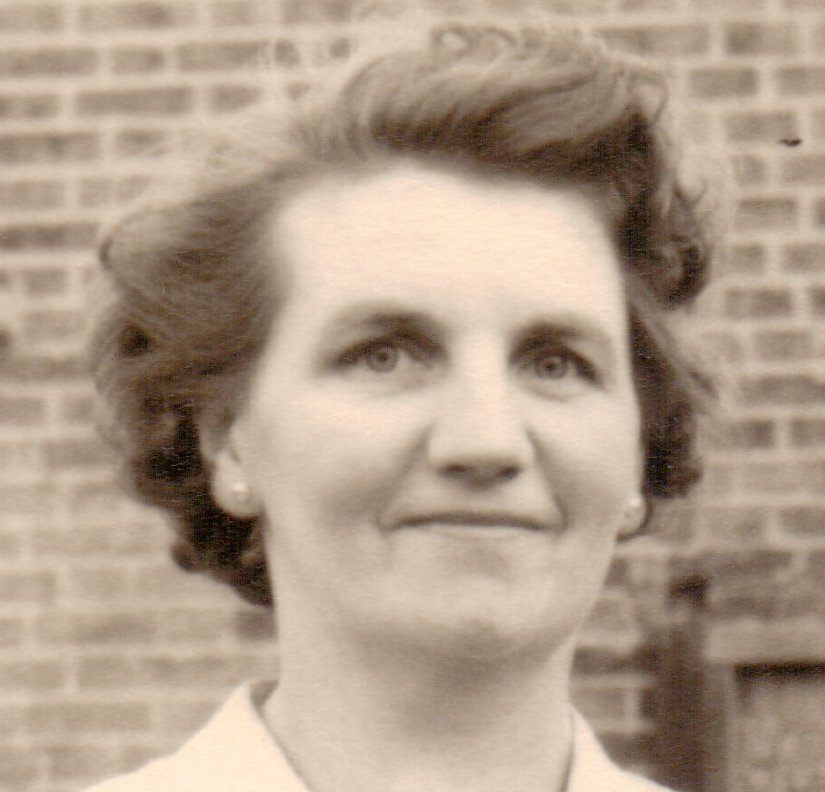Love and the Blitz¶
It all started a very long time ago – in fact during the years that I was growing up. I think I always had a dream that when I married and settled down to rear a family it would be in a big house with plenty of room for children and pets and any odd visitor that chanced along. In reality it turned out to be somewhat different.
I met the proverbial tall, dark and handsome stranger, he came from Ireland. Before long we were married and living in a small flat on the fringe of Epping Forest. We were wonderfully happy and marriage was fun, the great snag was that the war had begun and we had the awful threat of separation hanging over us.
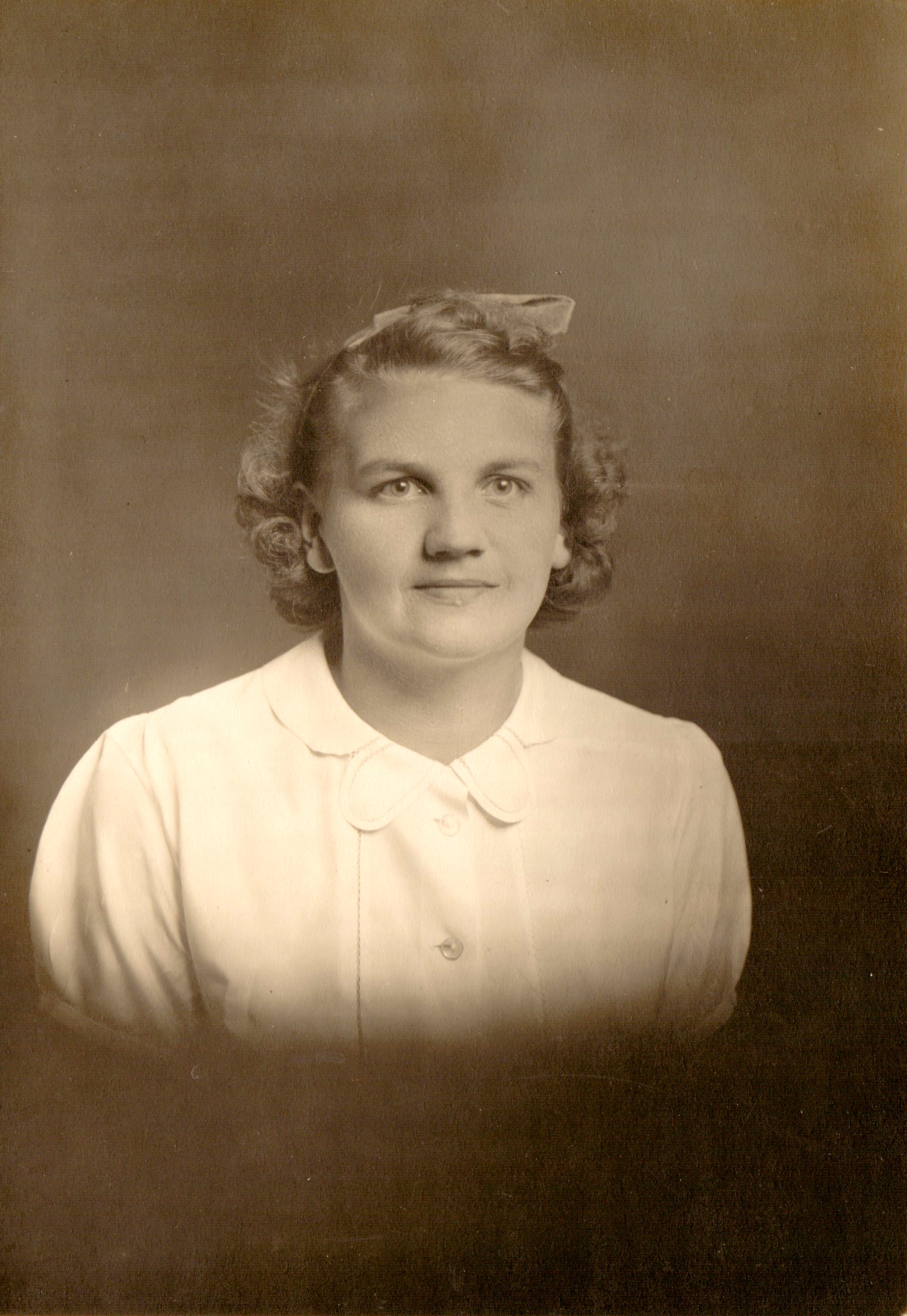
|
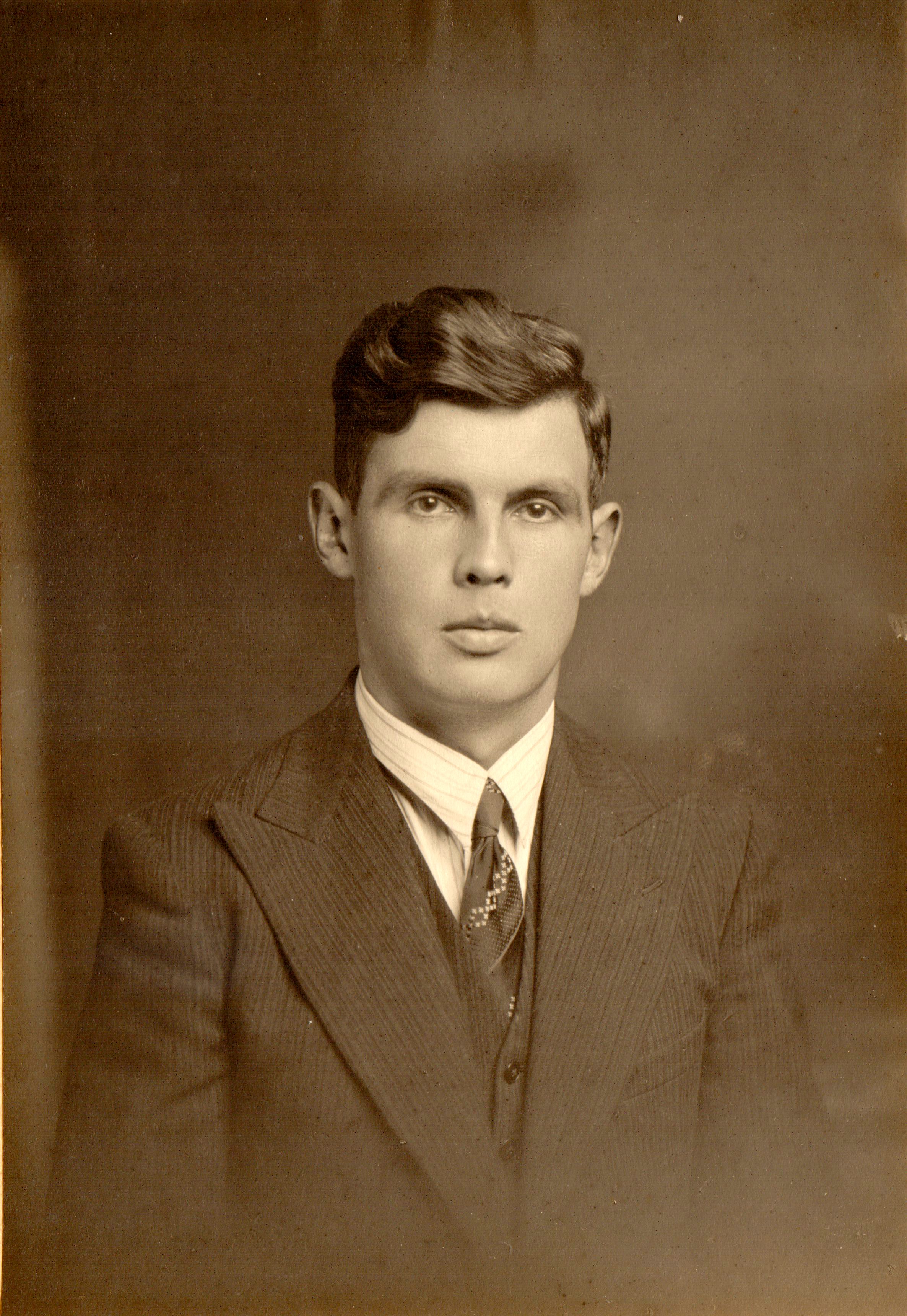
|
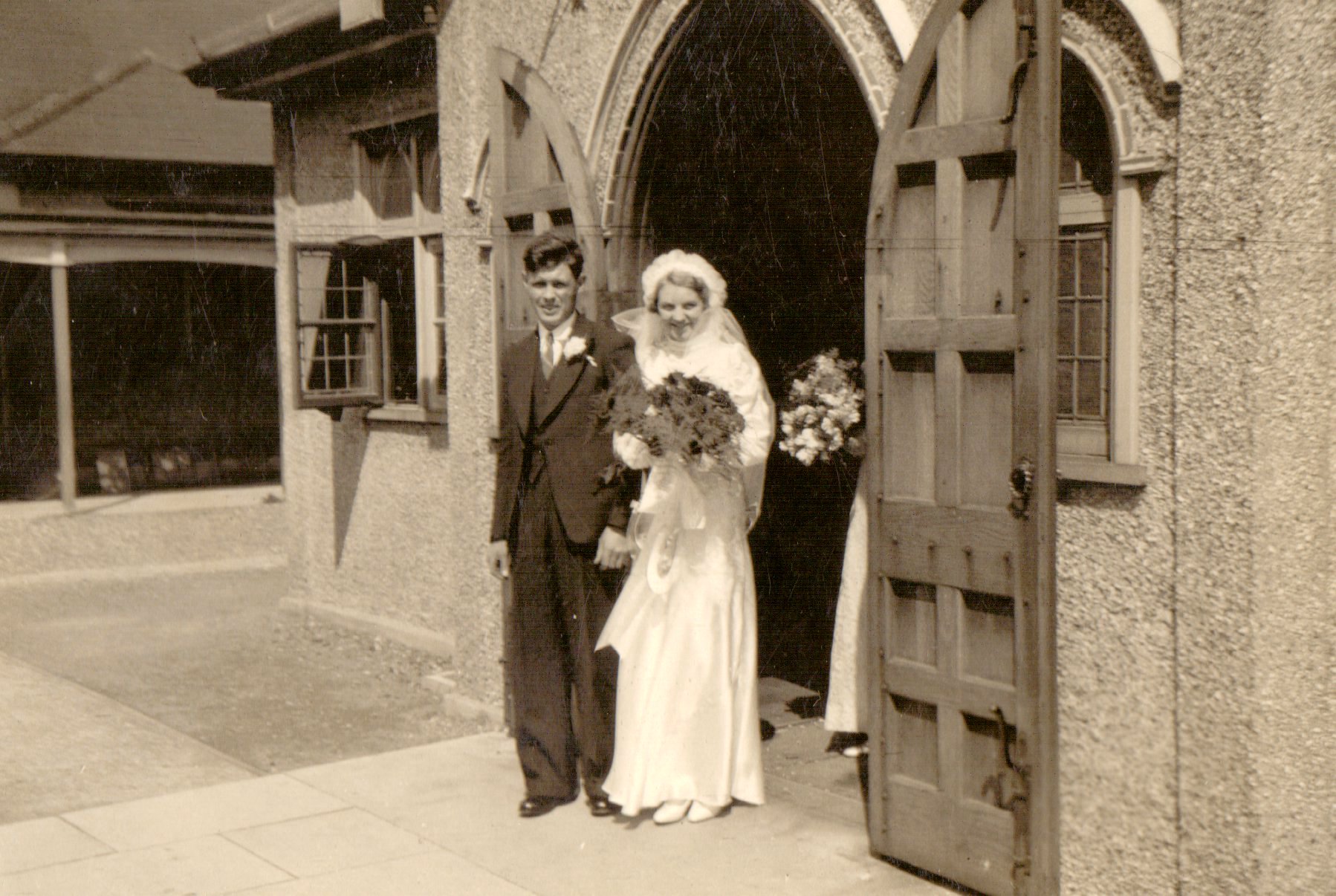
|
In the beginning - the start of it all
We were shopping in Stratford on that never to be forgotten Saturday afternoon when Hitler sent what seemed to us to be the whole of his bomber force to London. It was the eighth of September 1940, and the afternoon had really just begun when the wail of sirens started. Our hearts fell and we looked at each other and fear gripped our hearts; for although the wail of the siren was very familiar by this time, it had never before been accompanied by the sound of gunfire and bomber planes.
The Air Raid Wardens seemed to be about the streets at once and at the task of trying to get the bewildered public to go to the shelters. We all knew the drill, but having just passed through a year when the war seemed to be something that was happening to them, it was difficult to realise that this was definitely happening to us.
We scurried, with lots of other people as worried as ourselves, into an Anderson shelter to which one of the Wardens had directed us. It was situated in someone’s back garden. The guns were booming out at the planes which seemed to be just over our heads and for the first time we knew the whistle of a bomb.
We heard many bombs drop that afternoon, with explosions near at hand and in the distance. A young woman who was in the shelter with us was in great distress, for she had set out to search for her schoolboy sons who had been out playing when the siren sounded, and she had not succeeded in finding them. The gunfire and consequent falling of shrapnel had become more concentrated and the Wardens had told her that she must go to the shelter herself, for the boys would surely be taken in hand by some other Warden and sent to shelter and that she should not worry too much. She simply could not sit on the floor of the shelter with the rest of us, but stood near the door of the shelter, wringing her hands and crying quietly.
We were all really afraid. There was no covering of earth on the tin roof of the shelter, I suppose the man to whom it belonged had felt that he would never be required to spend any time inside it, and had never bothered to shovel the earth over it to the required depth to make it as safe as possible. As a direct result of the tin roof being bare, we found the sound of the shrapnel falling on to the roof very unnerving to say the least.
I know that a good many people who had forgotten that they had been taught to pray in times of great hardship, found themselves murmuring a prayer for survival that afternoon. After about an hour and a half, the din began to grow less and the planes appeared to have gone and it was a thankful band of folk in that shelter who heard the all clear signal.
We left the shelter and hurried down one of the side streets where a friend of ours lived to make sure that all was well with them. It was difficult to find how much damage had been caused for the streets were smoky and we could see there were very large fires burning in the distance. Fire engines were still making their way towards the dock area which had been the target of the afternoon’s attack. When we arrived at our friend’s house we found that she and all of her family were safe and well but she was very sad for a neighbour of hers had lost her life in this first devastating attack and the children were there in her kitchen and our friend was giving them tea although it did not seem that they fully understood that their mother was dead.
We had to leave them to go to our own home to see that all was well there. The bus service was all haywire and we walked home hardly speaking a word to each other for it seemed that a disaster had fallen about us.
Everything seemed to be normal in our district but when we reached our balcony on the second floor we could see the big fires still burning very brightly and we knew with certainty that the planes would return that night to follow up the afternoon raid.
We had a meal and got ourselves ready to go to the shelter; this was a small brick shelter which, with two others which were identical, was just big enough to hold all the residents in our block of flats.
As soon as it was dark, the siren sounded the dreaded warning, and we trooped down, withal the other residents to the tiny shelters and sat side by side, all recounting our experiences of the afternoon and all very apprehensive of the future.
We heard the planes roar over with the steady Brrr Brrr Brrr of their huge engines and then our own guns situated on the nearby forest started to fight back for us. We were glad to hear them but it started another worry, for we could not help wondering when a plane would land and how quickly it would explode if it was shot down. This conjecture seemed to keep the men arguing for ages for they all had their own different ideas of how a damaged plane performed and what happened to its load.
The night wore on and for long periods there would be comparative quiet and then there would be a sound of more planes coming and more gunfire and at one time it seemed that the afternoon attack was being followed up by all ‘old Hitler’ had to offer. Gradually in the early hours there seemed to be no more activity and we all began to get restless waiting for the ‘all clear’ to sound. It did not seem to be forthcoming so we began to look around for some way to get some rest. Most of the men who were still at home were on important war work of some kind, and mostly, Sunday was a normal working day. We tried leaning against each other and then tried sitting back to back but it was almost impossible for us to sleep, because, besides being tired we were worried about sleep during the nights to come, for the raids having once started with such startling success for the Germans, it seemed would continue.
The ‘all clear’ came with the dawn and we made our weary way upstairs and made some breakfast but we were both a bit irritable and very soon it was time for Joe to get shaved ready to go to work and after having a nap I put my mind to the problem of how to get some sleep if the bombers came again that night.
We had a short alert that day and some bombs were dropped not very far away but it proved to be a hit and run raid and the fighters were soon up after them sending them packing.
The night was cloudy but the bombers still came back again that night and we went to the shelter much better prepared, for we took a blanket and some cushions with us, but only one other couple came down to join us. We did not like to take up more than our own little portion of the benches as we kept on thinking that the other tenants would surely come, but, after an hour of waiting we spread ourselves out, and, trying to shut out the noise of the raid outside we got some fitful sleep. The raid did not last all night and although we did not fully trust the ヤall clear’ we went upstairs when it sounded and slid into bed and hoped for the best.
There was great discussion in the morning when we met the other tenants and discovered where they had spent the night. They had not been prepared to sit up again all night and having heard that the tunnel had been opened as a shelter had gone there when the siren sounded.
They all seemed to be of the opinion that they were safer in the tunnel than in the shelters at the back of the block of flats and I had an opportunity to try this for myself a few weeks later for Joe had to be away all one night and he felt that I should go to a shelter to sleep rather than make my way down by myself if a raid started in the middle of the night.
I decided to join my neighbours and with my tin helmet firmly perched on my head and my gas mask strapped on my back, my huge bundle of bedding, a flask of coffee and a book and most important of all my torch with my precious No. 8 battery for which I had queued best part of an hour I was ready to set off. As soon as the expected warning sounded the guns started to fire and we could hear the bombers before we reached the hill and it certainly hurried our steps.
The shelter proved to be the underground railway tunnel which was being got ready for the proposed extension to the Central Line underground railway system but it had been abandoned temporarily because of the war effort and it had been decided by the authorities to use it as an air raid shelter. It was built like a huge tube made up of circular sections bolted together. Each shelterer was allocated the next section not in use and as the latest recruit to tunnel sheltering I was given the section at the far end. To my dismay I found that there was a puddle where my bedding was to go but I flatly refused to put my bundle down in the wet but moved up several sections until I found a dry one. This meant that I was quite a little way along the tunnel from the people I had come with but I waved to them and called that I was quite all right and not to worry. Then I started to settle myself down. I was relieved in a way that we could not hear much of the raid going on outside but I felt that we would be in a bad way if anything happened to the railway bridge under which the tunnel ran as the steps by the bridge were the only way in or out of the shelter and I was the very last one in and would undoubtedly be the very last one out. However since there was nothing I could do to improve the situation I turned my mind to learning a tip or two from the veteran shelterers in the line of arranging one’s bedding in order to sleep comfortably, using a sheet of curved steel with huge iron bolts in all the wrong places for a mattress. Then I had to make my bed and very literally lie on it. I covered my head with the blankets and willed myself to sleep. It only seemed a short while later, but when I looked at my watch I knew it was about three hours later that we heard the unmistakeable whistle of bombs falling very near and the tunnel reverberated with several tremendous explosions.
At first I thought it must be a direct hit, and then realised that everyone was alright but some of the people were badly frightened. The wardens were wonderful and came right through the tunnel quieting those who were upset and reassuring everyone that all was well at least with our own little community. Of course everyone was wide awake and people were wondering how their homes nearby had fared and the friends who were in other shelters. It was a couple of hours later when the wardens brought in the news that the railway station had received a direct hit.
We were told that the raid was still on and that there had been several incidents in the vicinity and we should all stay put. Sleep was now out of the question so we just sat and talked and wondered how things were with the people outside. I shared my coffee with a woman who was nursing her baby and she made up her mind that if she was spared after tonight she would put the arrangements in hand to get herself and the baby evacuated. He was a dear little boy and I felt it was so dreadful for a baby to spend the nights of his first years in a miserable place like this instead of in his own little cot.
A great many of the children of London had been evacuated from the Metropolis when the first raids started and it was really only a few children that were around now, for even those who had been sent out of London at the beginning of the war and who had drifted back during the year of the phoney way had been sent away again now, very often to different places to those that had received them at first.
When the all clear sounded at about four thirty all I wanted to do was to get out of the tunnel and go home to my flat and climb into bed and sleep but even as I made some preparation to move I could see it was useless, for most of the shelterers made a habit of remaining in their places until their normal rising time and then to make the journey home to breakfast. So I just had to conceal my impatience and wait until everyone else was ready to leave and then pick up my bundle and follow them.
I did not use the tunnel any more until I had occasion to go in one day much later on in the war and it was very different then for it had been fitted with bunks and there was a canteen arranged for the dozens of people who slept there regularly. I was told that in the evenings there was a concert party, card games and also amusements for the children. A decided improvement.
All bedding had to be removed from the tunnel by 8 a.m. and it was a sight that to me always brings home the pathos of war, whole families, grandmas, parents and children of all ages, all bleary eyed after the night spent in discomfort gathering together their belongings to go home to get ready for a whole day’s work.
When I wanted to visit my mother these days I had a most round about journey to do. It involved a trip on three different buses and meant going right through the dock area which wasn’t a very healthy proposition these days. All the area around the arsenal had received very heavy damage. The road was up most of the time with great craters in it and the traffic was kept running by the superb efforts of the police and wardens who had to map out a fresh route along the bits of the road which were whole, and along driveways up to factories and across levelled off bomb sites when the road had given up the ghost for a while. This was not too bad if I felt well, but I was now carrying my first baby and found it pretty difficult to keep down my breakfast when we whizzed around the bend in the pseudo road which sometimes gave one the feeling of being on one of the rides at a fair. These journeys took a long time and I made the journey only when I felt it was time I paid a visit home or had had no letter for some time and needed to know how things were going on there. The risk of being caught in a raid was very great as there were nearly always a few bombs dropped in that area in any day or night raid and it was of everlasting credit to the older men and women who had answered the call and started back to work again in the factories and the disabled people and young girls who took the place of the men who were now in the armed forces.
The funniest experience I had on one of these journeys was on a winter evening and as my mother had not been well I had decided to go down to see her and take her some tea and a tin of dried milk that I had come by, it was a great feat to have something to give away these days and many of the stories of swapped bargains one heard in the endless queues.
I found that the buses through the docks were not running at all this evening and I had to use the train from Stratford to North Woolwich. It was already dark and of course there was nothing to light up the gloomy station and I was the only passenger in the carriage when we started off. The next stop was the dockyard and the train filled up with coloured men, who I suppose were working in the area or had brought in one of the very necessary food ships for Britain. It was quite uncanny to travel with them and only be able to see the whites of their eyes and the glow of their white teeth and hear them chatting to each other in the dark as the train went on its way to Woolwich. They helped me out at Woolwich and I followed them down to the ferry boat. I enjoyed crossing the river though for I could pick out the different buildings by their silhouettes. I had to pass Woolwich arsenal on my way and the guards there were always on the alert, and identity cards had to be shown to them on request and one was sometimes questioned for the reason for travelling. The guards at the arsenal were armed for part of the war at least and I think they were always on the lookout for fifth columnists.
There had been a great deal of destruction on this side of the river too and my mother’s house had no windows and a leaky roof by this time. They only used the downstairs rooms and had a shelter in the garden where they slept whenever there was a raid. We were all pleased to see one another and in exchange for the tea and milk that I had brought my mother had made some home-made jam with fresh fruit that her brother had given her and with sugar she had saved, goodness knows howノ It was wonderful to find them all well and safe and we were very thankful to have a quiet chat and the little gifts we had for each other meant so much in these days of chronic shortages. Several of our big ships had been lost and it was very apparent how dependent we were on the ships of the Merchant Navy and the fleet to protect them.
My father had gone to work down near Richmond just coming home occasionally and it was very evident that their marriage was on the rocks and their separation became final in the courts at the end of the year. This upset my mother a great deal and she began to look very ill and lost a great deal of weight. We were all very worried about it all but there was very little anyone could do to help for the decision had been made by them after twenty nine years of marriage.
My young brother was still at home with her and helped her as much as it was possible until he was called up for his National Service.
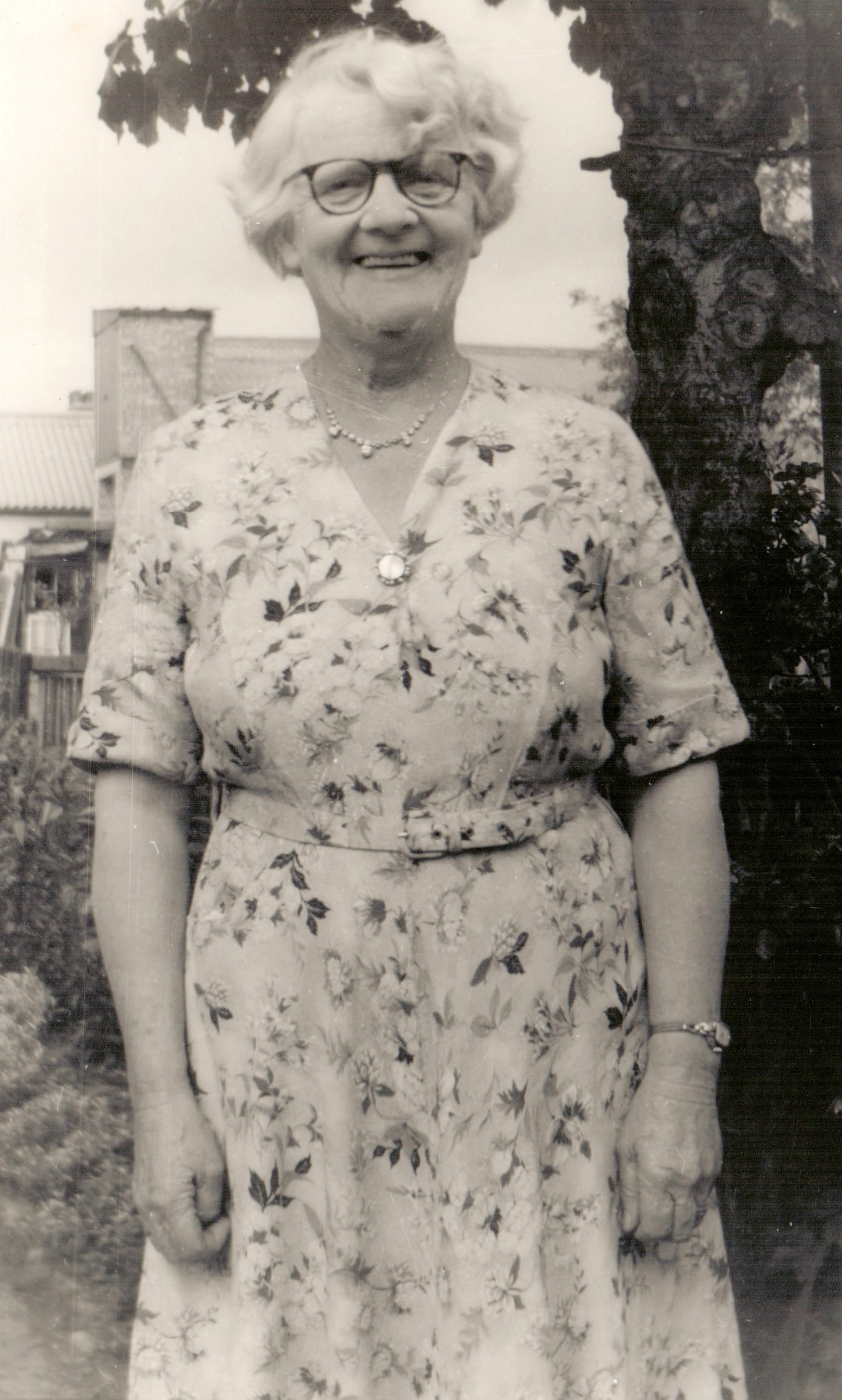
My mother |
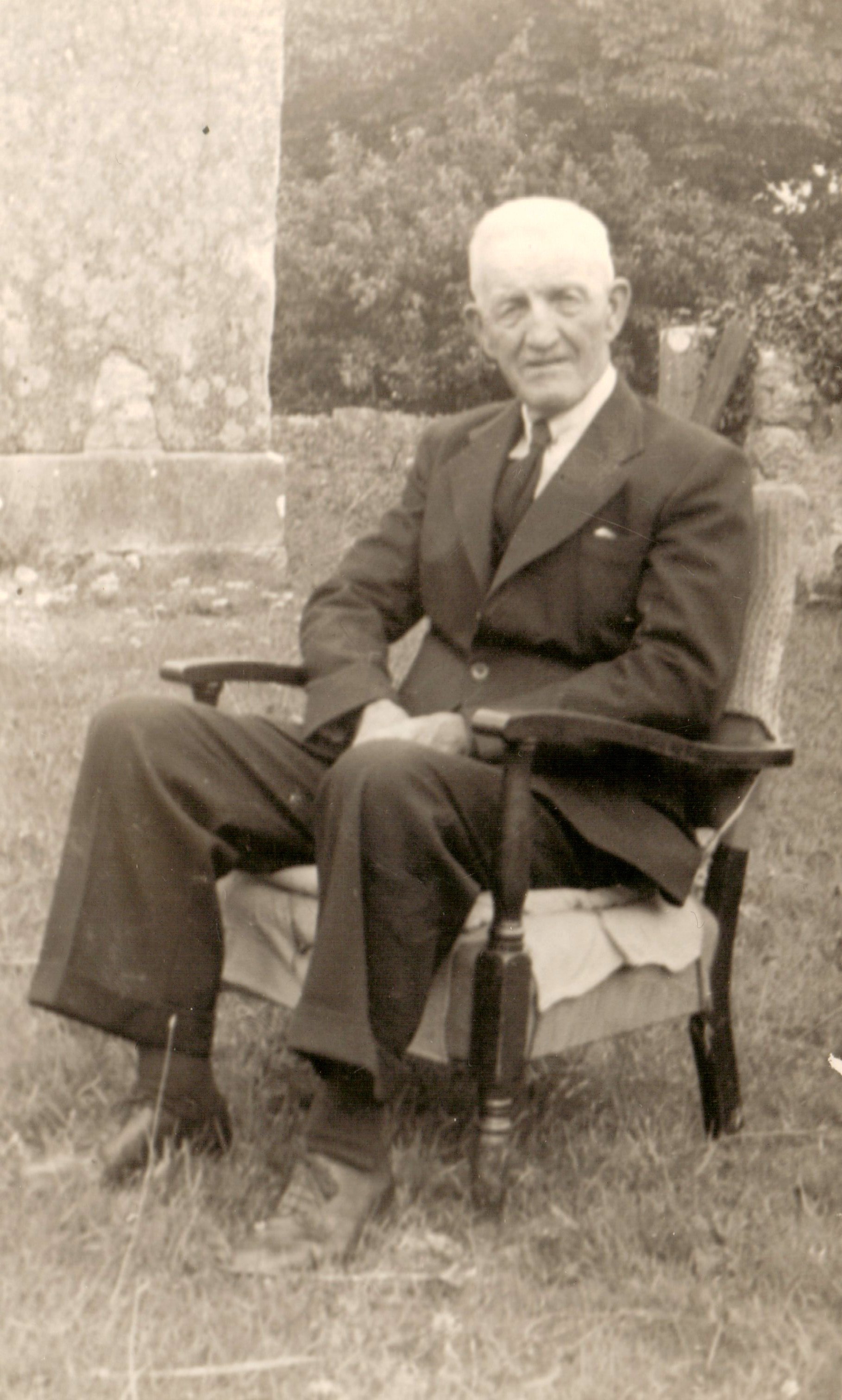
Joe’s father |
Founder members
